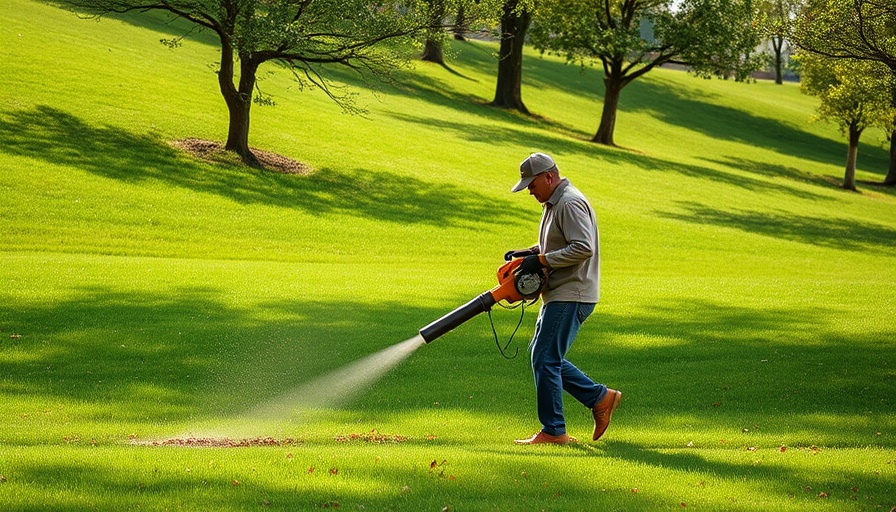
Understanding the Shift Towards Quieter Landscaping
As cities across the nation implement stricter noise ordinances, the landscaping industry is at a crossroads. While many of these regulations aim to mitigate noise pollution, they often serve an underlying agenda to phase out gas-powered equipment. For homeowners and small commercial property owners, navigating these changes can be crucial for maintaining their green spaces without falling afoul of local laws.
Why Local Engagement Matters
Staying informed about local legislation is pivotal for landscaping professionals. Kris Kiser, president and CEO of the Outdoor Power Equipment Institute (OPEI), emphasizes the value of direct communication with local government bodies. These interactions not only empower landscape professionals to stay ahead of regulations but also solidify their role in fostering community relations. Homeowners can benefit significantly by aligning themselves with landscapers who actively engage with local policies, ensuring that the services provided remain compliant and efficient.
The Advantages of Going Electric
For those in the market for landscaping services, it may be time to consider companies transitioning to battery-powered equipment. This shift not only meets community demands for reduced noise and emissions but also showcases commitment to green initiatives in lawn care. For instance, Ed Castro Landscape in Roswell, Georgia, has already reported a positive response from clients looking for environmentally conscious options. Homeowners looking for lawn care that adheres to modern standards should prioritize hiring services that embrace sustainable practices.
Cost Considerations
While the benefits of electric landscaping equipment are undeniable, the financial implications of switching from gas-powered to electric models cannot be overlooked. Many small to mid-sized landscaping firms face challenges when it comes to the high upfront costs associated with purchasing lithium-ion batteries and other electric tools. Homeowners should understand this limitation and appreciate the long-term goals of their chosen landscaping providers. By investing in companies that prioritize sustainability, homeowners not only contribute to a greener future but also set an example for the local community.
Listening to the Community's Needs
Engaging with the broader community should also extend to soliciting feedback from clients regarding services offered. Understanding clients' desires for quieter landscaping options can influence a company's investment choices and operational strategies. Landscaping professionals can enhance their market offerings by integrating clients' needs with legislative changes, ultimately building trust and fostering stronger relationships.
Future Trends and Innovations in Landscaping
As the landscaping industry adapts, we can anticipate exciting innovations in lawn care that balance efficiency and sustainability. Electric mowers and battery-powered tools are likely to become mainstream, with technology enabling longer operating times and increased power. By tapping into these market trends, homeowners can stay ahead, ensuring that their outdoor spaces remain vibrant and well-cared for, regardless of changing regulations.
Conclusion: Make Informed Choices for Your Landscape
Understanding the implications of noise ordinances and the shift towards electric equipment is vital for homeowners and small commercial property owners. As regulations continue to evolve, selecting landscaping services that prioritize compliance and sustainability will not only benefit individual properties but will also contribute to the larger community goal of reduced noise and emissions.
By choosing informed landscaping companies, you can play a role in promoting green practices. Stay engaged with your local landscape service providers and advocate for practices that meet your needs while supporting community well-being.
 Add Row
Add Row 
 Add
Add 


Write A Comment